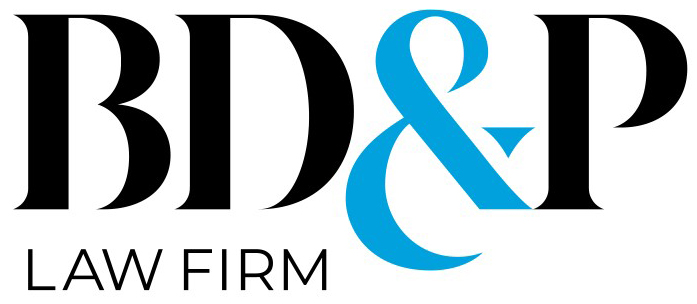Playing by the Rules of the Game: Arbitration in a Professional Sports Context
By Randall W. Block, Q.C., Justine Blanchet and the Hon. Thomas Cromwell, C.C.



What happens when collective bargaining agreements and tort law collide? This intersection is increasingly at issue in the context of professional sports organizations. Can arbitration clauses extend to personal injury claims arising in the course of employment? Can Commissioners of professional sports leagues sit simultaneously as disciplinarian and arbitrator? The response from our courts is yes, if the contract says so.
The issue of arbitration in a professional sports context is not new. In April 2016, the NFL succeeded in reinstating a four-game suspension originally imposed on quarterback Tom Brady, and affirmed on appeal by Roger Goodell, the NFL Commissioner. The NFL Collective Bargaining Agreement granted Commissioner Goodell the dual roles of disciplinarian and arbitrator of disputes.[1] Brady and the NFLPA claimed that Goodell was biased and the suspension could not stand and sought judicial review. On appeal, the United States Court of Appeals for the Second Circuit held that had the parties wished to restrict the Commissioner’s authority, they could have signed a different deal.[2]
In Bruce v Cohon, 2017 BCCA 186 [Bruce],[3] the plaintiff claimed that he suffered concussions while playing for the BC Lions and the Montreal Alouettes. The defendants applied to stay the action on the basis of an arbitration clause contained in the collective bargaining agreement. The BCCA performed a “Weber Analysis”[4] and found that the essential character of the dispute related to health and safety of the player in the workplace. The Court held that this fell squarely within the ambit of the Collective Bargaining Agreement and the Standard Players’ Contract, and the agreement to arbitrate contained therein.[5]
Recently, in Henderson et al v Wideman et al, Court of Queen’s Bench Action No. 1701-05255 [Henderson], the Alberta Court of Queen’s Bench addressed the issue of mandatory arbitration under the NHL’s Constitution. On January 27, 2016, Don Henderson, an NHL linesman, was struck by Dennis Wideman, a player for the Calgary Flames. Henderson filed a lawsuit against Wideman, and the Calgary Flames.[6] The defendants applied to stay the action on the basis that the claims arising from the incident were subject to mandatory arbitration under the NHL Constitution.
The NHL Constitution is binding on member clubs, players, and officials, and contains a broadly worded arbitration clause stating that the NHL Commissioner has “full and exclusive jurisdiction and authority to arbitrate and resolve” disputes among those parties.[7] The NHL was granted intervenor status in the stay applications, and supported the position that the lawsuit must be stayed in favour of arbitration. The applicants argued that Mr. Henderson’s claims fell squarely within the plain wording of the mandatory arbitration clause in the Constitution and that the jurisdiction of the Commission was exclusive. Further, notwithstanding the Crown was not a party to the arbitration agreement, that claim was derivative and therefore could (and should) be arbitrated.
The plaintiffs/respondents argued that the Alberta Arbitration Act did not apply because they were not parties to the arbitration agreement contained in the NHL Constitution. Further, the purported arbitration agreement was not binding on the Crown’s claim. Further still, they argued that Commissioner Bettman was biased and therefore could not preside over the arbitration, rendering the clause void.
The court granted the applications and stayed the action in favour of arbitration pursuant to section 7 of the Arbitration Act and the NHL Constitution. The court held that Mr. Henderson and Mr. Wideman were bound by the arbitration clause contained in the NHL Constitution. The issues of jurisdiction and bias were to be considered by the arbitrator in the first instance.[8]
Justice deWit reiterated that courts have adopted a policy of non-intervention when dealing with arbitration clauses and would enforce adherence to these clauses by the parties who entered into them.[9] The court agreed that the Crown’s claim was derivative because the essential character of the dispute arose under an arbitration agreement. The inclusion of a third party claim would not remove the dispute from the arbitrator’s jurisdiction.[10]
The court concluded by stating that the law provided clear guidance that courts should give generous interpretation to arbitration provisions and that it is the arbitrator who, at first instance, is to determine issues of jurisdiction, contractual interpretation, and bias, because those determinations required questions of mixed fact and law.[11]
Our courts perform the same analysis of arbitration clauses in a professional sports context, as they do in other cases. In Cohon, the “Weber Analysis” was conducted and the matter was referred to labour arbitration because the essential character of the claim was caught by the scope of the submission to arbitration. In Henderson, the issue was the scope of the submission to arbitration. On the face of it, the claims were within the agreement to arbitrate.
The decision in Henderson is clear that Alberta courts continue to follow the competence-competence principle. A court must first look at the construction of the agreement: the definition and scope of disputes to be arbitrated, and before whom those disputes are to be arbitrated. The role of the courts is to enforce the dispute resolution procedure agreed to by the parties.[12] Challenges to the arbitrator’s jurisdiction or questions of bias, must be addressed by the arbitrator in the first instance.[13] Parties can still be bound by arbitration clauses, where those third parties consent, or where the essential character of the dispute falls within the purview of the agreement to arbitrate.
.[1] National Football League Management Council et al v National Football League Players Association et al, 820 F (3d) 527 (2nd Cir 2016) at para 25.
[2] Ibid.
[3] Bruce v Cohon, 2017 BCCA 186, leave to appeal to SCC refused, 37696 (15 March 2018).
[4] The Weber Analysis refers to the Supreme Court of Canada decision in Weber v Ontario Hydro, [1995] 2 SCR 929. In Weber, the Supreme Court of Canada outlined the “essential character” test which dictates that if essential character arises from the interpretation, application, administration or violation of a collective agreement, the dispute must proceed by way of arbitration.
[5][5] Bruce at paras 81, 83, 87.
[6] The Crown was named as a plaintiff to recoup the associated healthcare expenses.
[7] NHL Constitution at Article VI.
[8] Bisaillon v Concordia University, 2006 SCC 19 at 33; Arbitration Act at s. 17; Sattva Capital Corp v Creston Moly Corp, 2014 SCC 53, among others. On bias and competence-competence see: Husky Oil Operations Ltd v Saipem Canada Inc, 2017 ABQB 489 [Husky Oil]; Knox v Conservative Party of Canada, 2007 ABCA 295.
[9] UCANU Manufacturing Corp. v Graham Construction, 2015 ABCA 22 [UCANU]; Epcor Power LP v Petrobank, 2010 ABCA 378 [Epcor].
[10] Bisaillon v Concordia University, 2006 SCC 19; Piko v Hudson’s Bay, 1998 CarswellOnt 4475; Yaworski v Gowling Lafleur Henderson, 2013 ABCA 21
[11] See Husky Oil; UCANU; Epcor.
[12] See Husky Oil; Bruce; and EPCOR among others.
[13] Union des consommateurs c Dell Computer Corp, 2007 SCC 34 at para 84 ; Bisailllon, Yaworski and Piko, supra.
Randall Block, Q.C. is a partner in the commercial litigation group of Borden Ladner Gervais LLP’s Calgary office. Randall is recognized as one of the world’s leading lawyers in energy and oil & gas law: http://blg.com/en/Our-People/Block-Randall
Justine Blanchet is a partner in the insurance and tort liability group of Borden Ladner Gervais LLP’s Calgary office: http://blg.com/en/Our-People/Blanchet-Justine
The Hon. Thomas Cromwell, C.C. is senior counsel in the Ottawa and Vancouver offices of Borden Ladner Gervais LLP. Mr. Cromwell was Justice of the Supreme Court of Canada from December 2008-September 2016: http://blg.com/en/Our-People/Cromwell-Thomas



















